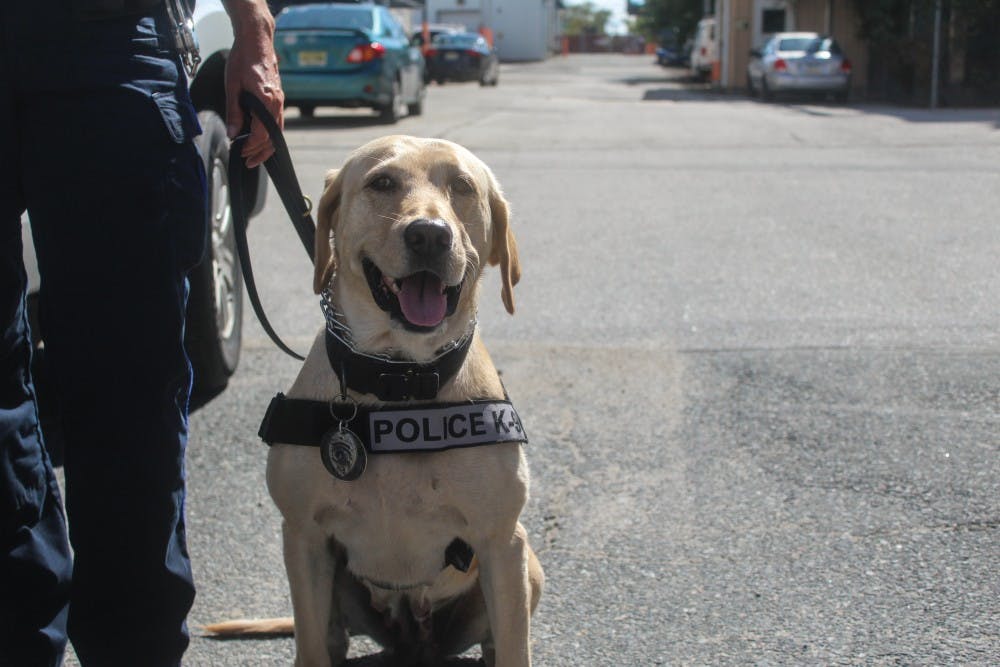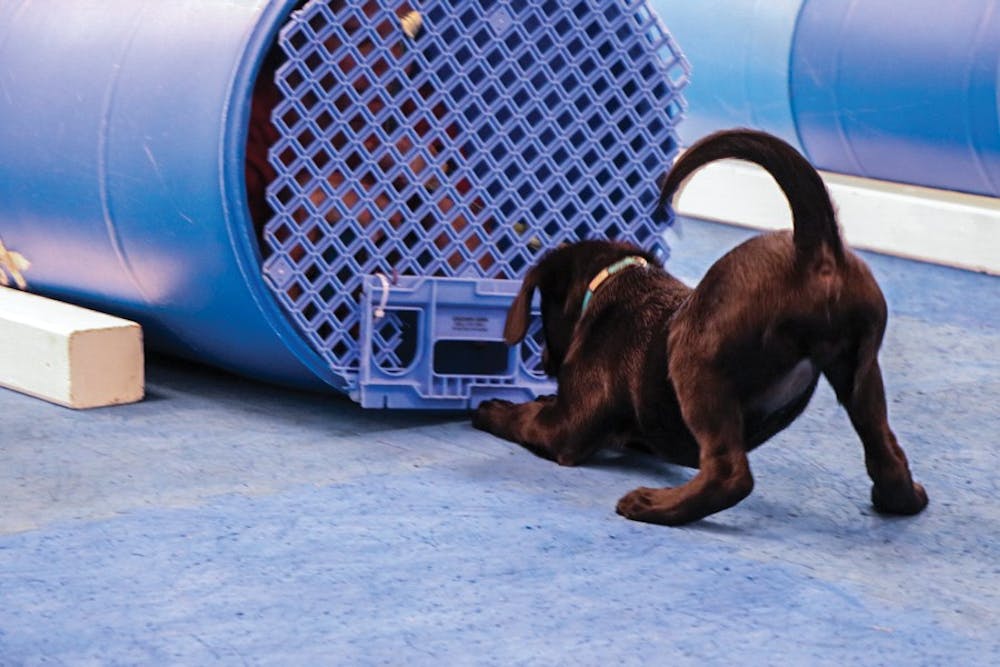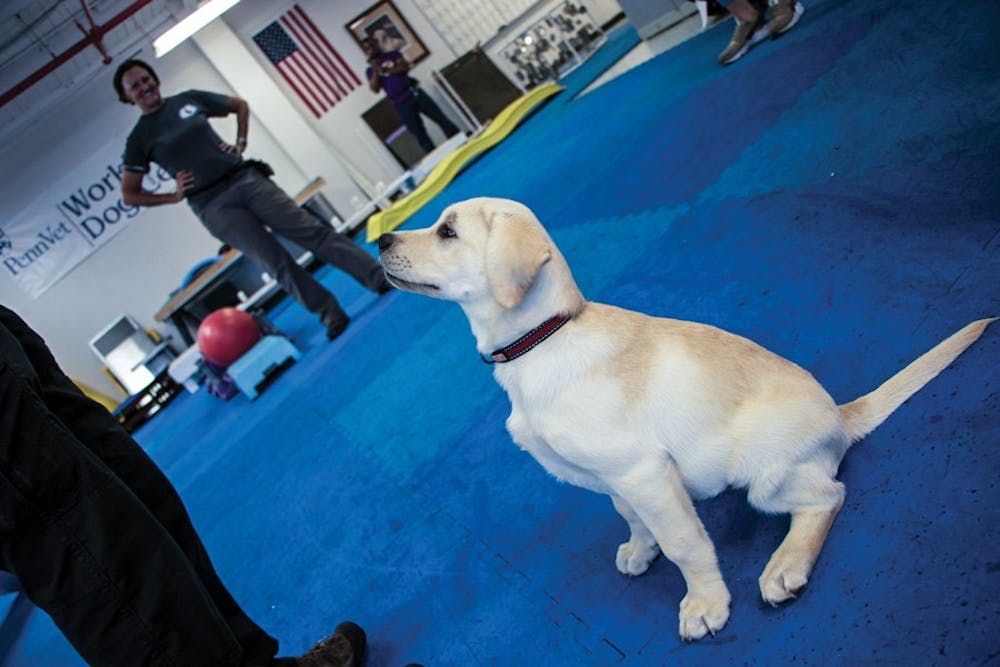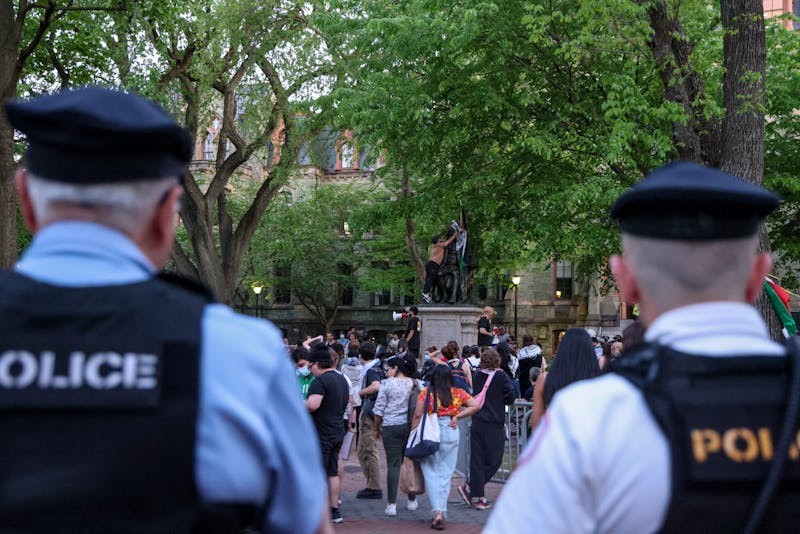
Pictured here: Socks
Credit: Pranay VemulamadaAt just under three months old, a new batch of puppies have started training to become working dogs for Penn.
Socks, the five-year-old Labrador retriever who was the first recruit to the Division of Public Safety's Canine Unit, gave birth to a litter of puppies earlier this year. Four of her new puppies — Elvis, Jenner, Moxie and Willow — are in training at the Penn Vet Working Dog Center to fulfill a variety of professional roles.
PVWDC, which opened in September 2012, is devoted to caring for and training dogs to become police dogs, bomb sniffers, search-and-rescue dogs and cancer detection canines.
Socks, who was a graduating member of the center's first training class in 2013, works with the Penn Police to detect explosives.
While Socks' puppies are not quite ready to enter the professional world, Elvis, Jenner, Moxie and Willow have succeeded in various training tasks including walking over a peanut shaped medicine ball and locating someone hiding in a barrel.
“You start them with something simple, and they pick up quickly,” Training Director for PVWDC, Major Annemarie DeAngelo, said. “We do a lot of things with a little distraction in the beginning because they are so young.”
DeAngelo said that she was satisfied with the puppies' progress so far, but added that there are certain challenges that come with training puppies. In addition to their tendency to be easily distracted, some of the puppies have been reluctant to participate in certain tasks.

Photo by Stacy Lutner Ritchey | Pictured here: Willow
When Elvis was dealing with a peanut-shaped obstacle for the first time, he preferred to rest on top of it, rather than climb over it as he was supposed to do, PVWDC trainer Donna Magness said.
Magness, who is one of three trainers designated to Socks’ puppies, is in charge of training Elvis and Moxie. PVWDC trainers Bridget Stewart and Danielle Berger are assigned to Jenner and Willow respectively.
DeAngelo and the trainers said it is important for the dogs to have fun while training.
“We don’t want to force them. We want them to do it because it’s fun. So if it’s just two feet [on the ball] that’s okay. When he goes and gets on himself, that’s called offering the behavior,” DeAngelo said.
She added that many of the tasks that people view as life-saving skills are approached by the dogs as games.

Photo by Stacy Lutner Ritchey | Pictured here: Moxie
Since the puppies are so young, their future careers haven't been determined yet. The trainers will choose their roles based on the dogs' preferences and skills.
“For search and rescue, you need to be really, really good at hunting. Police dogs are more visual based. It’s what the dog is good at and what they enjoy,” Stewart said about their future assignments.
For her second litter of puppies, Socks was bred with Pete, a dog from the Puppies Behind Bars program, which enlists prison inmates to care for and train service and bomb-sniffing dogs for wounded veterans and law enforcement officers.
Socks' caretaker, Penn Police Officer Julie Wesley, has been patrolling campus with Socks since 2014.
“I’ve been with her about four years,” she said. “She has a built-in light switch where she knows work versus home.”
Their duties can include sniffing unattended packages and checking the sites of large-scale events for explosives.
Volunteers of all skill levels are able to work with the PVWDC. Interested persons can donate time by fostering a puppy or collaborating on research at PVWDC.
The Daily Pennsylvanian is an independent, student-run newspaper. Please consider making a donation to support the coverage that shapes the University. Your generosity ensures a future of strong journalism at Penn.
Donate






